8th SCM Research Colloquium 2024/25
Seminar
01 Apr 2025
3:30 p.m – 5:15 p.m
M6050 Screening Room 1, Level 6, Run Run Shaw Creative Media Centre
|
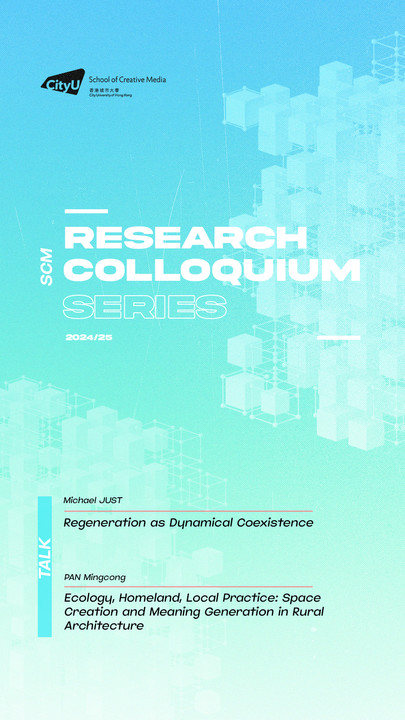
|
The SCM Research Colloquium is a presentation platform for sharing and discussing recent projects by researchers, faculty members, and guests of the School of Creative Media. As a monthly session open to all for ideas exchange and intellectual conversations over coffee/tea and light refreshments, each session features two speakers, with Q&A sessions hosted by Prof. Espen Aarseth or Prof. Richard Allen.
In our 8th session, PhD candidate Michael JUST and his collaborator and designer/researcher, PAN Mincong, will present on their collaboration project that culminated in a co-authored paper "Ecology, Homeland, and Local Practice: The Zhouqian Art Community as a Case Study for Revitalizing Rural Architecture and the Spirit of Place" submitted to Folk, Knowledge, Place Journal.
Seminar 8
1 April 2025, 3:30 p.m – 5:15 p.m
Regeneration as Dynamical Coexistence
Michael JUST
This talk focuses on the core topic of my thesis, which is the regeneration of systems pertaining to the built environment, specifically architecture and urbanism. Regeneration is understood here as relational, creative, and context-sensitive, that is, as an environmentally embedded process of creation through relation (Watson) as much as the creative reinterpretation of memory.
I present my fieldwork in Guangdong Province where I live with villagers and farmers, using the medium of film to capture the lived experience of relationships between humans and diverse practices and beings, material and immaterial (The Solid and the Air, 2025). I develop in my thesis how these relationships and ways of life that have sustained China as an agricultural society and that have become increasingly marginalized during modernization have been and continue to be reinvented and reinstantiated by the Rural Reconstruction Movement. Based on the specificities of culture, technology and location and abstracting from them simultaneously, I argue that frameworks of regeneration need to be developed from a perspective of diverse intelligences and diverse embodiments, considering synthetic and hybrid organisms and (artificial) intelligence far beyond human (re-)cognition. Furthermore, I sketch out a research program for transdisciplinary artistic practice that may have the capacity to facilitate this integration.
The research discussed here has been presented at conferences in Krakow, Poland, Zhouqian Village, Guangdong and Barcelona, Spain, in 2024 and will be published in an edited volume with Routledge in collaboration with TU Delft in 2025.
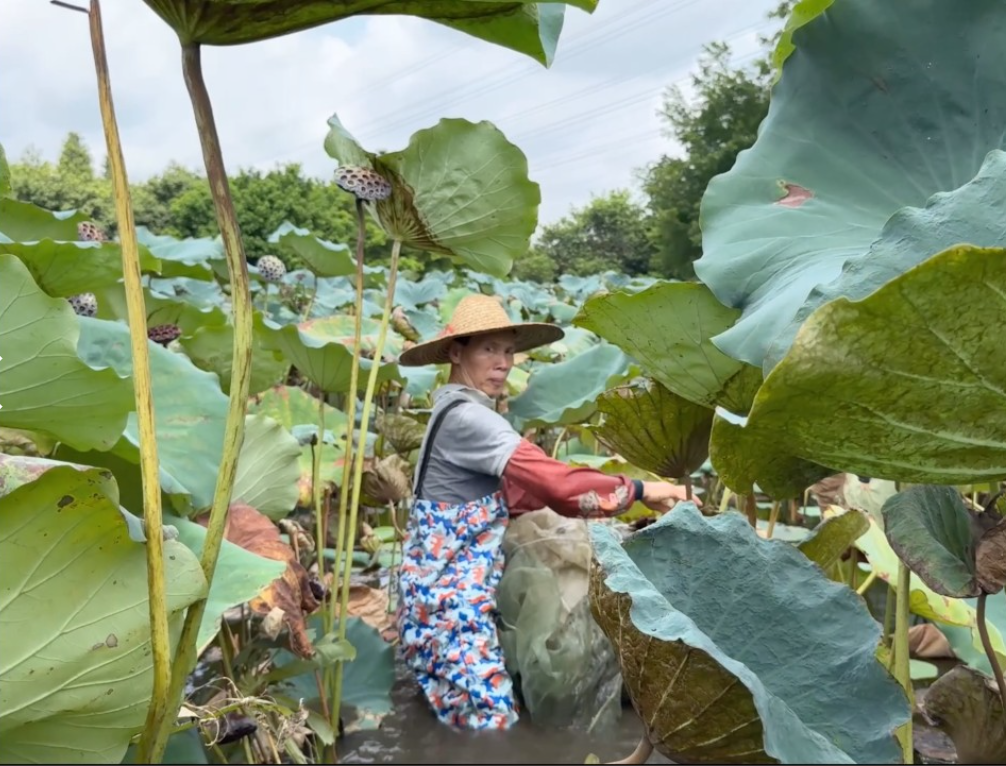
Film stills from “The Solid and the Air”, 2025, Uncle Rui fishing in a lotus pond
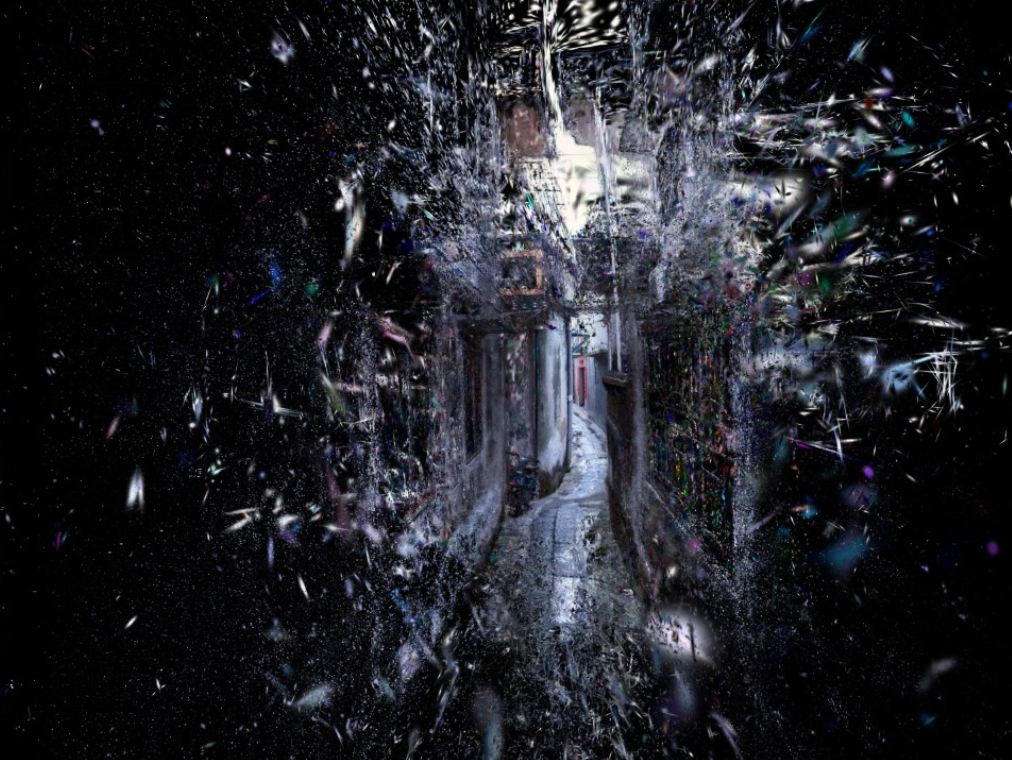
Film stills from “The Solid and the Air”, 2025, Qingtian Village alley, modified 3DGS
BIO : Michael Just is a transdisciplinary artist, founder of Michael Just Office & Studio, Berlin, and PhD candidate at the City University of Hong Kong, School of Creative Media. In 2024, he was a guest researcher at TU Delft, Faculty of Architecture and the Built Environment, supported by the CityUHK Research Activities Fund. He is also a Steering Team member at DigitalFUTURES where he co-organizes the Doctoral Consortium on Architecture & Philosophy and Artificial Intelligence. Michael holds MFA degrees from both the Kunstakademie Düsseldorf (Prof. Daniel Buren) and Goldsmiths, University of London and participated in the Whitney Museum of American Art Independent Study Program in New York City. Recent teaching includes institutions such as Hong Kong Baptist University AVA and the China Academy of Art, Hangzhou.
Ecology, Homeland, Local Practice: Space Creation and Meaning Generation in Rural Architecture
PAN Mingcong
Artistic Rural Construction (ARC) is a social practice initiated in response to the urban-rural divide and problems of rural development arising from China's modernization. It is also an important form of localized participatory art in China. ARC aims to bridge differences and foster practices through mutual engagement rather than authoritative command, while emphasizing the restoration of rural relationships and the renewal of traditional customs and ways of life.
This talk is based on a local practice case study of ARC, the Zhouqian Art Community (ZAC), which opened in 2024. I present the construction process of the ZAC in Guangdong, China, along a timeline, and will focus on the practical attempts to rebuild the local spirit and lifestyle in Zhouqian Village. First, by analyzing the situated presence of emotional attachment, place spirit, and manifold relationships in the countryside, I aim to reveal the value of the countryside as a cultural ecology and spiritual home, proposing three pathways for the revitalization of Zhouqian Village: Folk art revival, art performances, and rural education. Secondly, I will elaborate in detail on the coordination of form and function in the creation of the ZAC, and the practical process of combining tradition and contemporary innovation. Finally, juxtaposing the construction of physical buildings with the establishment of a multi-stakeholder negotiation platform leads to the conclusion that localized artistic events and inclusive public spaces, as points of interaction among multiple stakeholders, can effectively promote the transformation of rural habitat and the renewal of lifestyles.
This AR artwork is designed to be viewed using an iPhone or iPad.
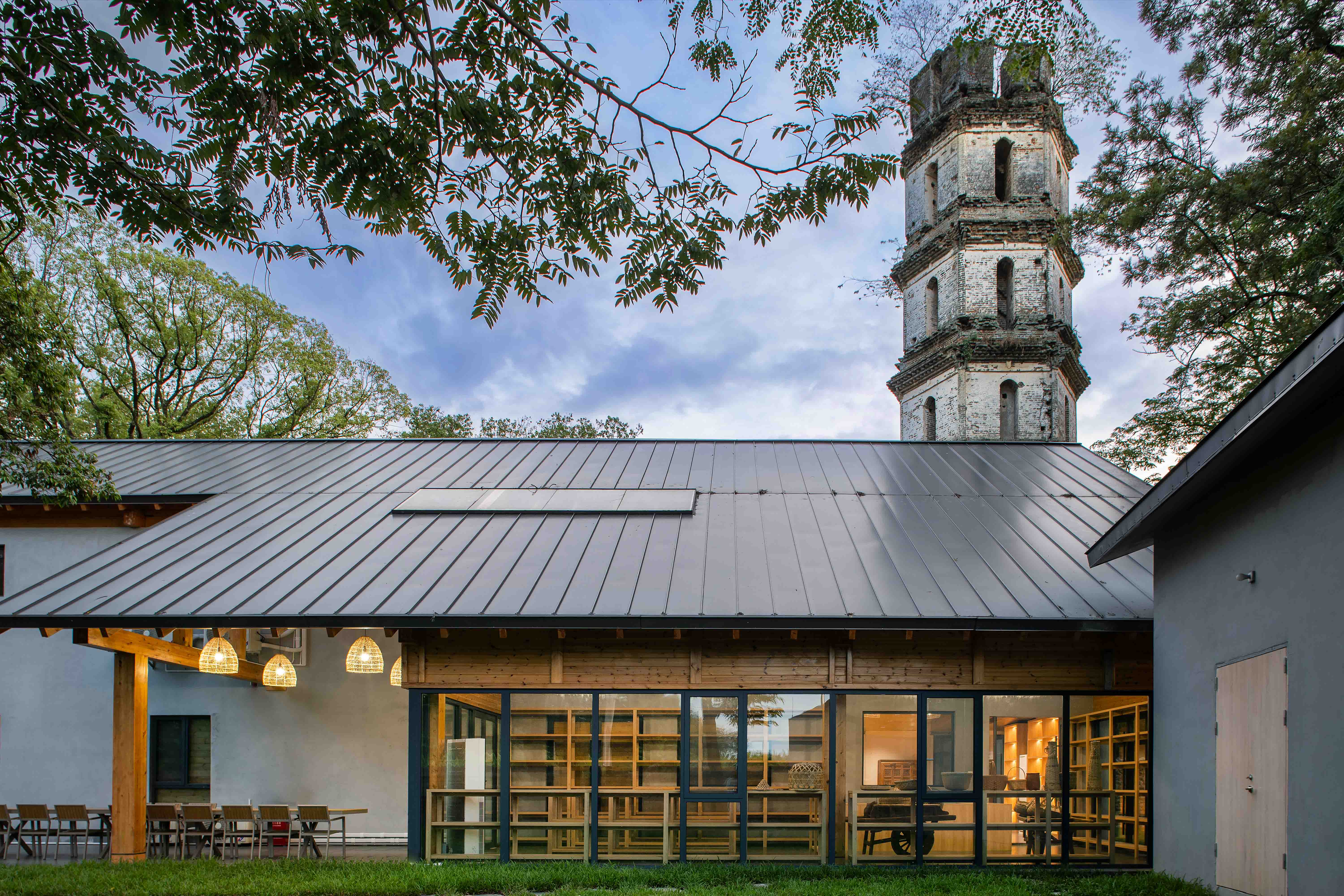
Trees, buildings and pagoda in ZAC
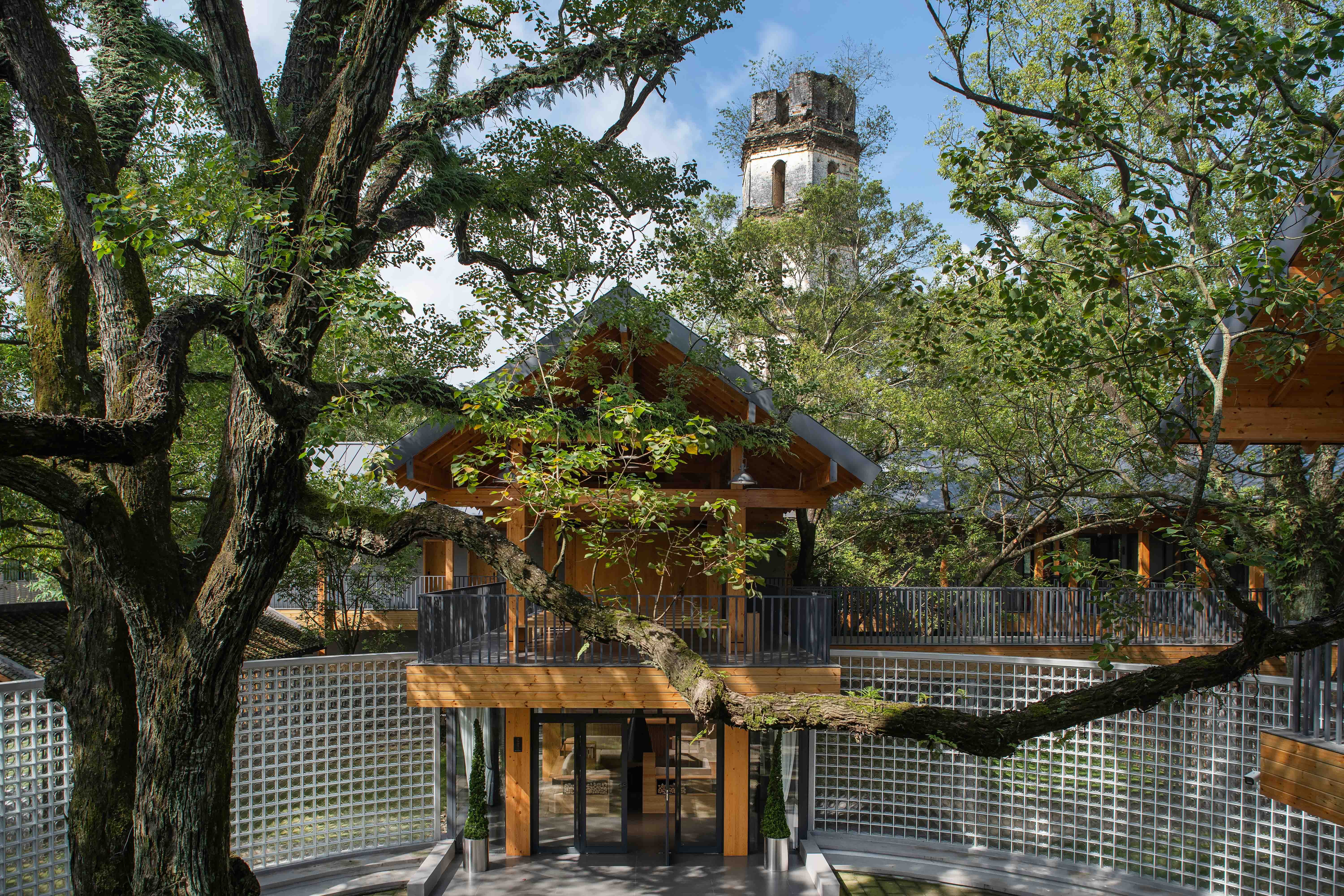
backyard of ZAC
BIO : PAN Mingcong’s research focuses on regional rejuvenation, rural reconstruction, and sustainable development path research of China's rural areas. As a Research Assistant at the Rural Art Construction Research Institute, Guangzhou Academy of Fine Arts, PAN’s current project engages with the development of rural areas in southern China, especially in the Pearl River Delta, prior to which he participated in the Qingtian project in Shunde, Guangdong and the Zhouqian project in Shaoguan, Guangdong. Having studied the theory and method of participatory art under Professor Qu Yan with a focus on Artistic Rural Construction, PAN’s interdisciplinary endeavor expands across comparative research on rural construction in Asia, investigating the active role played by artists and youth groups in rural construction, and preparing for the first Asian Art Rural Construction Triennial.